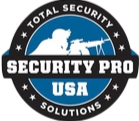
Coronavirus has affected millions across the entire world. Now, more than ever, PPE is vital. Personal protective equipment is what makes a huge difference in stopping the spread of coronavirus. Not only that, but it protects the healthcare workers who risk their lives each day to care for patients with coronavirus.
What Is PPE?
According to the FDA (Food and Drug Administration), PPE serves as a protective barrier between a person’s eyes, nose, mouth, or skin, and infectious materials. PPE can include aprons, gowns, goggles, respirators, medical masks, face shields, gloves, and bodysuits. Typically, PPE will vary based upon the circumstances. For instance, the PPE used to treat someone with Ebola varies from the PPE used to treat coronavirus.
Should You Use Personal Protective Equipment?
PPE is extremely useful in protecting us from exposure to infectious materials, as well as protecting us from spreading infectious materials. Everyone can make use of personal protective equipment. Symptoms of coronavirus can take up to two weeks to reveal themselves, meaning that even a seemingly healthy person could spread COVID-19. The use of a mask greatly reduces the chances of spreading COVID-19 to others.
If you have asthma, kidney disease, diabetes, or heart problems, coronavirus can pose a great risk to you. Other conditions that could put you at risk because of coronavirus include:
- Sickle cell disease
- Serious heart conditions
- Obesity
- Cystic fibrosis
- Cerebrovascular disease
- High blood pressure
- Dementia
- Liver disease
- Pregnancy
- Smoking
- Thalassemia
- Pulmonary fibrosis
If you are at risk or live with someone at risk, PPE can make a difference between life or death. PPE will keep you from spreading coronavirus to your loved one and can protect you from coming into contact with it. When you use PPE, you don’t have to worry about risking your life or the lives of others.
How Personal Protective Equipment Protects Our Healthcare Workers
Personal protective equipment greatly aids healthcare workers. Each day, a healthcare worker will see multiple patients. Any of these patients could have coronavirus. If a healthcare worker did not use PPE, they would be exposing all of the patients they saw that day to COVID-19.
Healthcare workers use many forms of PPE. Gloves are used to protect their hands, gowns and aprons protect their skin and clothing, goggles protect their eyes, masks protect their nose mouth, and face shields protect the face, mouth, nose, and eyes. Sometimes respirators are used in a healthcare setting to protect the respiratory tract from airborne infectious agents.
PPE is completely necessary for nursing homes especially. Adults above the age of 65 are at high risk when it comes to coronavirus. A nurse working in a nursing home will interact with most of the patients in the facility throughout their rounds. Without PPE, they could infect each patient. Unfortunately, the nursing homes that have been involved with coronavirus have experienced many deaths. This is why PPE is so important.
Where To Find Quality Personal Protective Equipment
There is a current shortage of PPE across the United States. Many healthcare facilities and citizens are in search of PPE to protect themselves, their patients, and their loved ones. Security Pro USA does not only offer a large selection of personal protective gear to browse, but our PPE is in stock.
Whether it’s 50 masks for your healthcare facility, a few face masks or shields for your family, or antiseptic hand sanitizer for personal use, we have it available to be shipped straight to you. To find out more about our selection of COVID-19 safety products, visit Security Pro USA today. We are here to keep you and those around you safe during these dangerous times. For more information, call us at (800) 264-8273.

0 comments